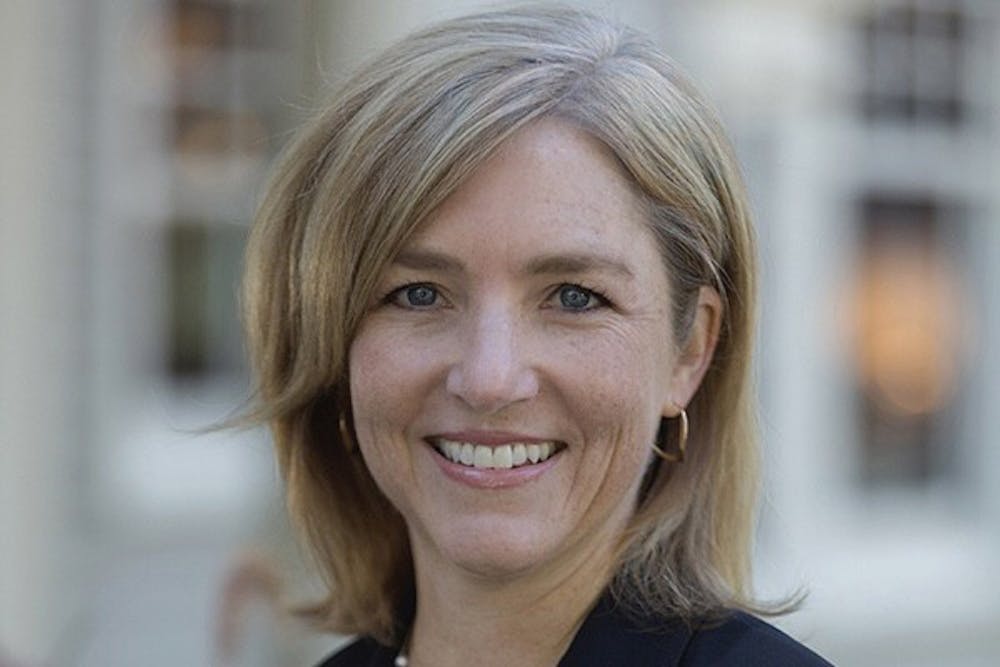
University officials recently announced the appointment of Whitney Soule as Penn’s next dean of admissions and vice provost. Soule, who will assume the position on July 1, is currently senior vice president and dean of admissions and student aid at Bowdoin College.
In her new position, Soule will oversee an admissions process whose inequities have only been highlighted by the COVID-19 pandemic. In particular, low-income students are chronically underrepresented at Penn and other Ivy League schools, and have disproportionately chosen to postpone or forgo college due to the pandemic. To address inherent inequalities in college admissions, Soule must promote admissions policies that increase socioeconomic diversity at Penn.
While many elite universities face a lack of socioeconomic diversity, the problem is particularly acute at Penn. 71% of Penn’s student body comes from the richest 20% of Americans. Moreover, according to U.S. News and World Report, only 13% of Penn students received federal Pell Grants for low-income students from 2018-2019, the lowest percentage in the Ivy League. In contrast, 19% of students at Princeton University and 18% at Columbia University received Penn Grants. Penn also accepts a significant portion of its students from the Early Decision pool, whose applicants tend to be wealthier than other applicants. In December 2020, 1,194 students were admitted through Early Decision, making up about half of the Class of 2025.
This striking discrepancy is likely due to a variety of factors. During the application process, selective colleges and universities often look for high GPAs and evidence of rigorous coursework, which may be inaccessible for applicants who attend underfunded schools or have less access to individual attention from instructors. Students who need to work part-time or take care of family members may also have less time to be involved in extracurricular activities, another significant factor in elite college admissions.
Additionally, many institutions lean heavily on standardized test scores and on legacy admissions, which have both been shown to favor wealthier applicants. Perhaps most significantly, the high cost of tuition at elite institutions like Penn sets up a barrier that discourages many low-income students from applying, despite the extensive financial aid available from the University and other sources.
This unjust state of affairs must not continue. Instead, Soule must work to ensure that students from a variety of backgrounds have a fair opportunity to derive the benefits of a Penn education. She must try to remove structural barriers at all stages of the admissions process, from application submission to review.
Some new initiatives could include increased financial aid, elimination of application fees for low-income applicants, deemphasis of standardized test scores and legacy admission, and increased consideration of socioeconomic background during the application review process. By focusing on these policies, Soule can help ensure that a more diverse group of students access the Penn education they deserve.
In her previous role, Soule took several of these steps to increase socioeconomic diversity at Bowdoin. For instance, she eliminated the application fee for all applicants who were first-generation college students or were applying for financial aid. She also continued Bowdoin’s test-optional policy, which has been in place since 1969. Finally, Soule also introduced an optional video response, where applicants could offer a short response to a randomly-selected question. This could allow all students, not just those from a low-income background, to convey their personality more easily than on a written applications.
Penn President Amy Gutmann and Provost Wendell Pritchett highlighted in their announcement that under Soule’s tenure, the number of students on financial aid, first-generation students, and students of color at Bowdoin increased. At Penn, Soule should continue supporting similar policies to make the admission process more accessible and allow fairer evaluation of students from a wide range of backgrounds.
Editorials represent the majority view of members of The Daily Pennsylvanian, Inc. Editorial Board, which meets regularly to discuss issues relevant to Penn's campus. Participants in these meetings are not involved in the reporting of articles on related topics.
The Daily Pennsylvanian is an independent, student-run newspaper. Please consider making a donation to support the coverage that shapes the University. Your generosity ensures a future of strong journalism at Penn.
Donate



